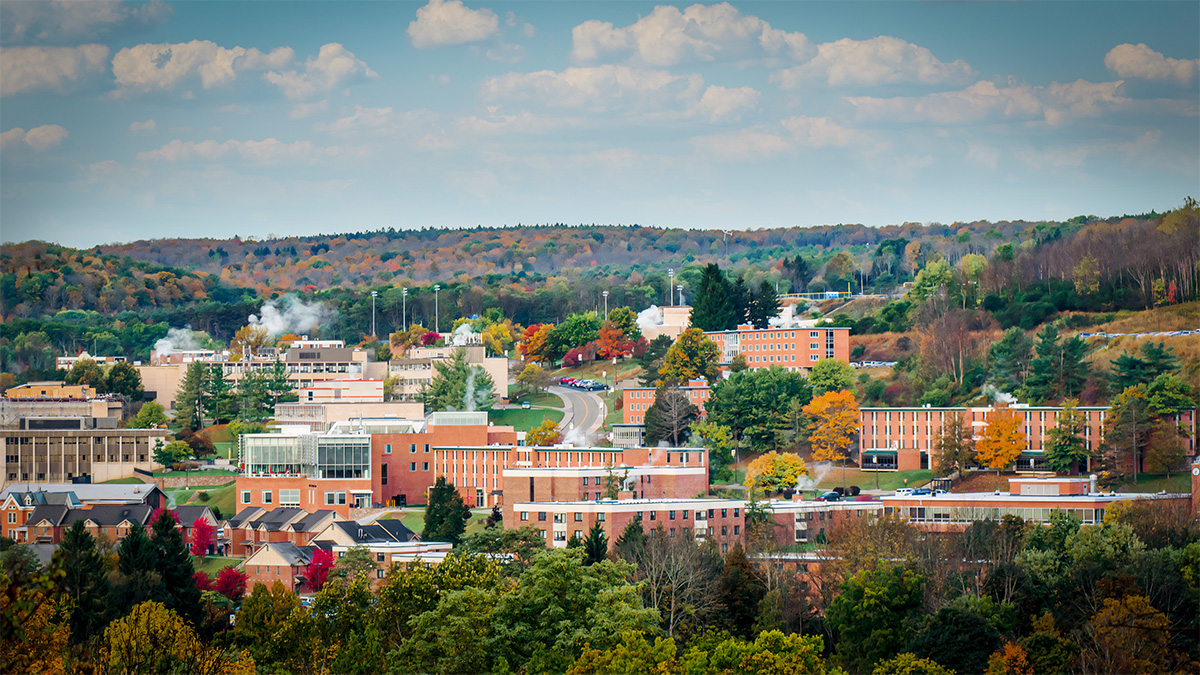
At a glance
The college has recently expanded its academic offerings to now include associate and bachelor’s degree programs in mechatronics technology. Classes for these programs will begin in the fall 2019 semester.

Alfred State College is constantly looking to add majors that address an industry need by producing well-rounded graduates who have the skills and knowledge that employers eagerly seek.
That’s why the college has recently expanded its academic offerings to now include associate and bachelor’s degree programs in mechatronics technology. Classes for these programs will begin in the fall 2019 semester.
Graduates of the Associate in Applied Science (AAS) degree in mechatronics technology will be able to continue their education in the Bachelor of Science (BS) degree program of the same name.
Mechatronics interweaves electrical, mechanical, and computer engineering technology with applications in automated industrial processes and robotics. Mechatronics professionals design and maintain automated equipment in laboratories, offices, or on-site at manufacturing plants.
These specialists work toward the same goal of producing safe and efficient automated equipment. While technicians primarily maintain machinery, engineers are more concerned with the design and development of components and products.
As Professor Timothy Cochran, coordinator of the mechatronics programs, explains, the appeal of mechatronics is to be able to comprehend an entire system. Electrical engineers may be tasked with programming or power distribution, while mechanical engineers may look at the moving linkages and drives. A mechatronics background provides an overview of both.
“Mechatronics is centered on industrial process automation,” he said. “That may mean setting up cells of an automated assembly line or overseeing a system of warehouse robots selecting and packaging orders. There are many possibilities, and I believe a strong job market. I’m looking forward to seeing students enroll in the program next fall.”
A mechatronics technology graduate will design, adapt, and troubleshoot electro-mechanical systems that are controlled by programmable digital devices. Occupational opportunities for mechatronics technology graduates include robotics testing, automation engineer, controls engineer, industrial robotics mechanic, and programmable logic controller assembler.
Dr. Matthew Lawrence, professor and chair of the Mechanical and Electrical Engineering Technology Department, said the addition of the mechatronics technology programs to the department’s offerings addresses a real industry need.
“Mechatronics is a combination of mechanical and electrical engineering technology with emphasis on motion and control systems, as well as process automation,” he said. “The engineering principles of mechatronics apply to nearly all modern industrial systems, and students will have many career opportunities upon graduation. Our industrial advisory board, which includes industry experts, employers, and alumni, has long awaited graduates with this unique combination of skills. We look forward to welcoming our first students to the program in the fall 2019 semester.”
President Dr. Skip Sullivan said, “The new programs in mechatronics technology are yet another example of Alfred State’s commitment to providing majors that are in high demand. I applaud the faculty and staff who made these new programs possible.”
Dr. Kristin Poppo, provost, said, “Alfred State is pleased to offer mechatronics degrees at the associate and bachelor’s levels to provide more options for students in engineering-related fields. There are exciting careers for these students in many sectors including manufacturing.”
Dr. John Williams, dean of the School of Architecture, Management and Engineering Technology, said, “We are excited to bring our mechatronics AAS and BS programs to fruition. The Mechanical and Electrical Engineering Technology Department has a long and successful history in related engineering technology fields that will serve as a solid foundation for the new programs’ focus of automation, controls, and supporting modern manufacturing. Industries from across the region have expressed interest and support as we developed these majors. We are preparing for the programs, including revamping laboratory space and equipment, and look forward to their start in fall 2019.”
